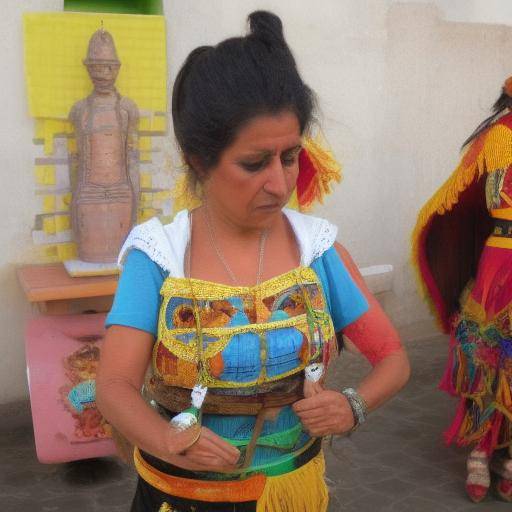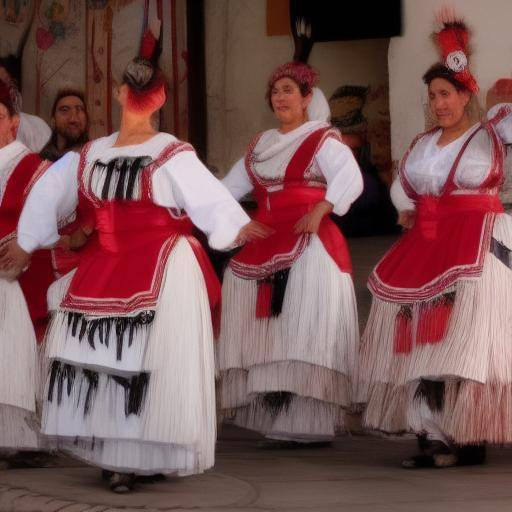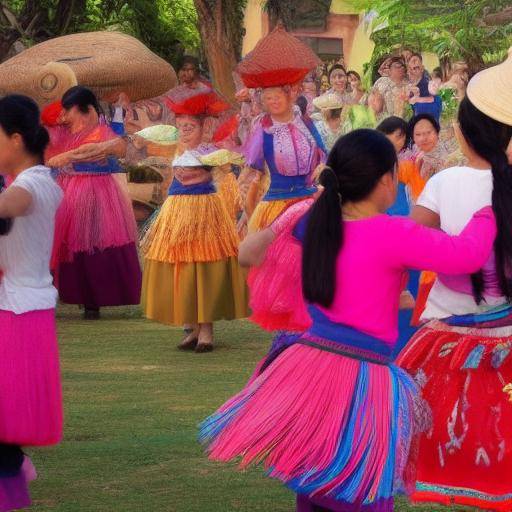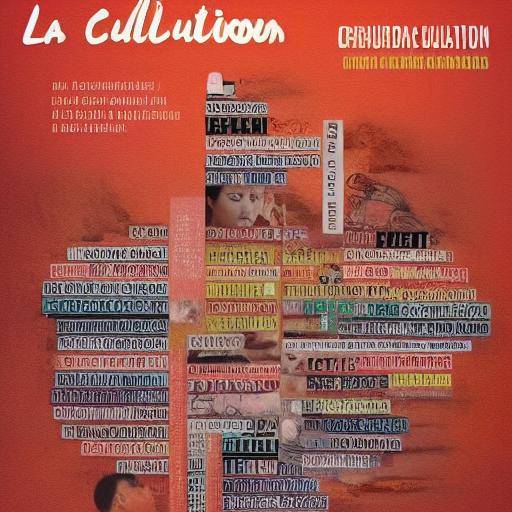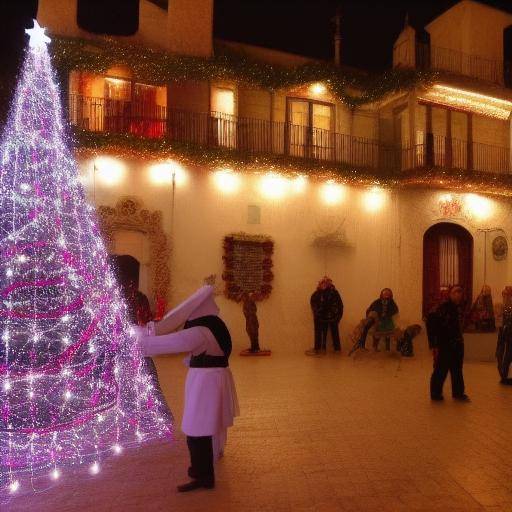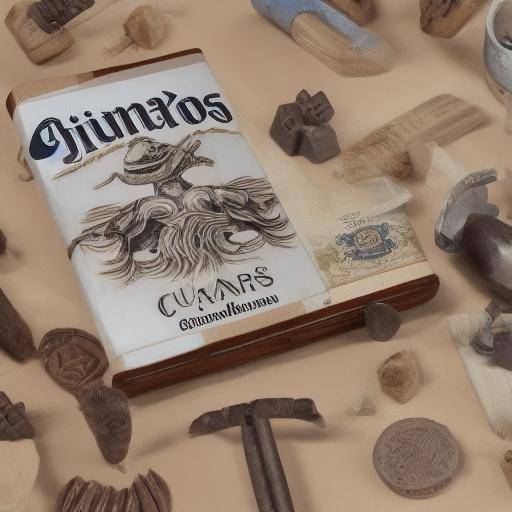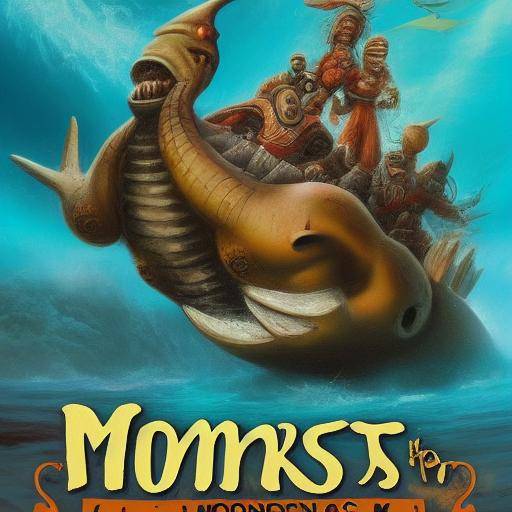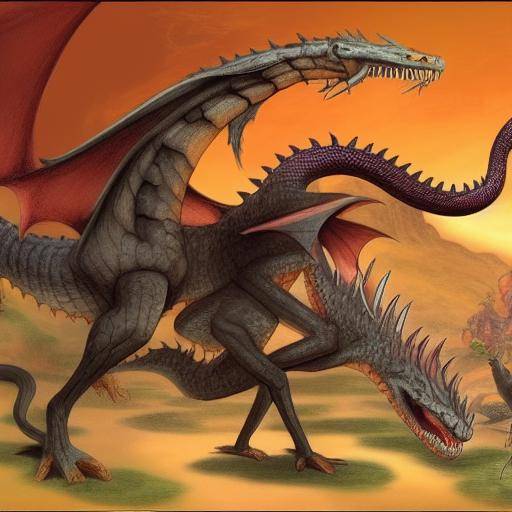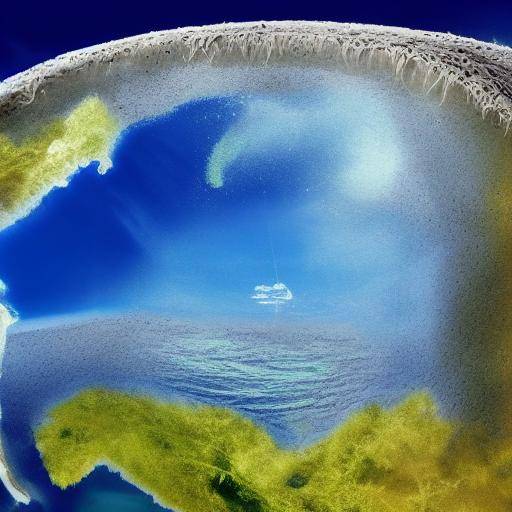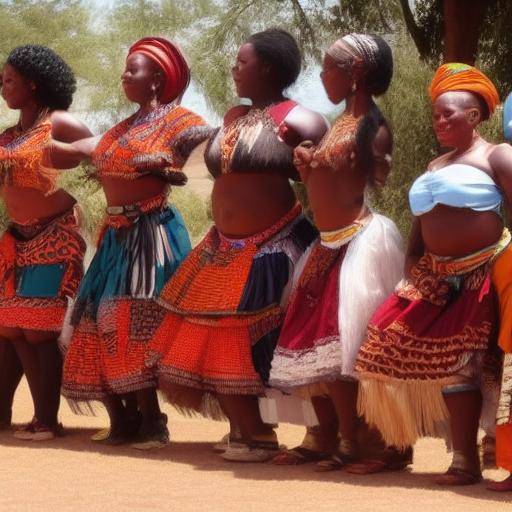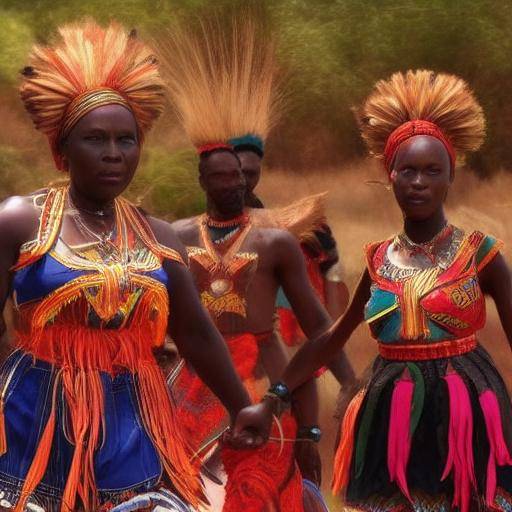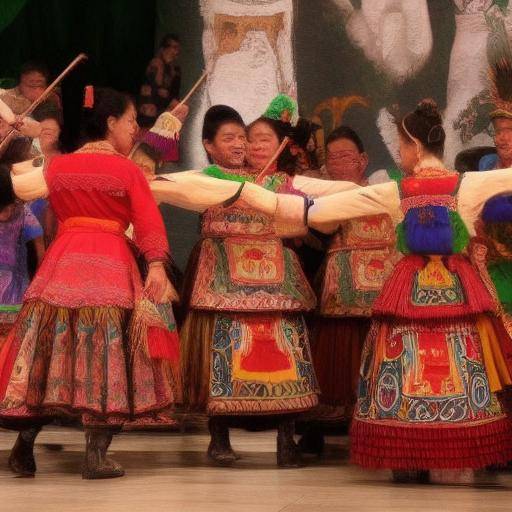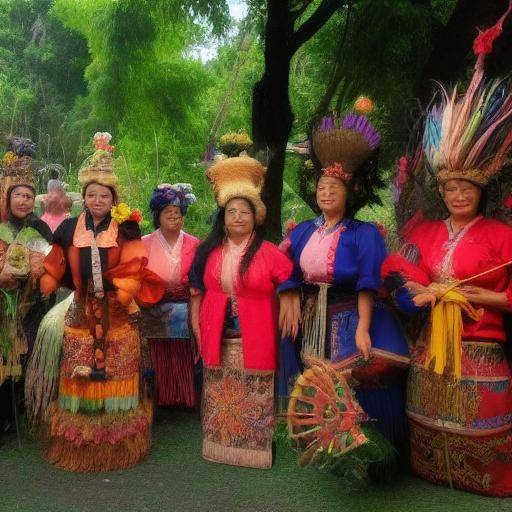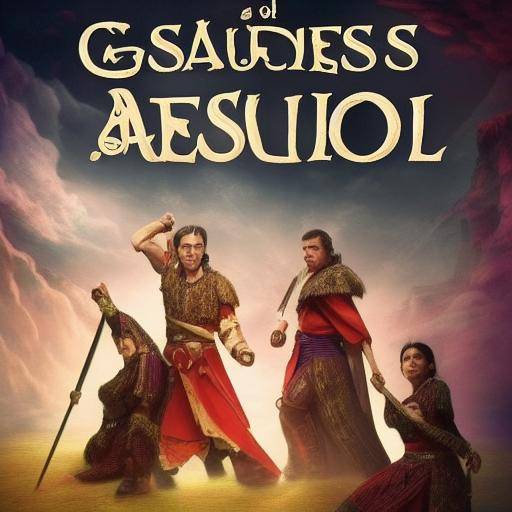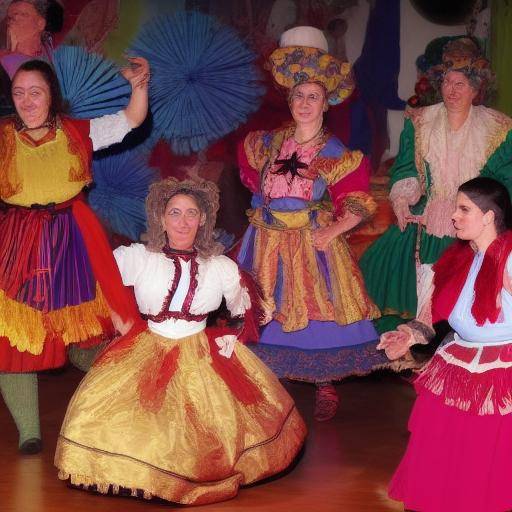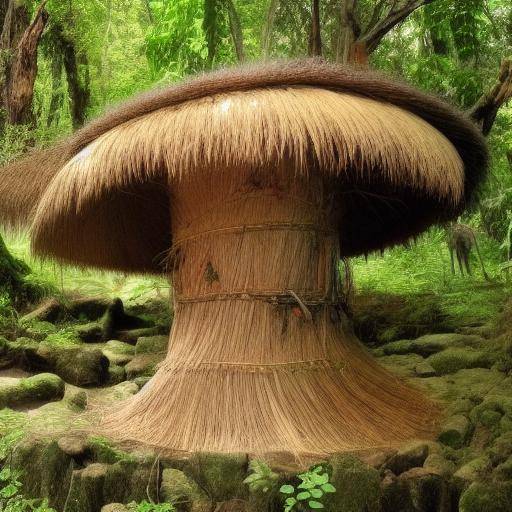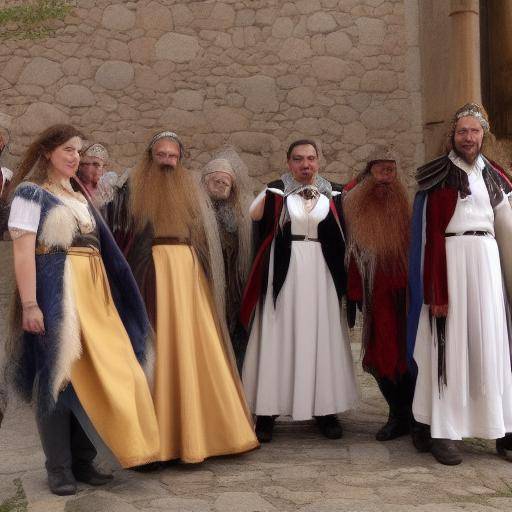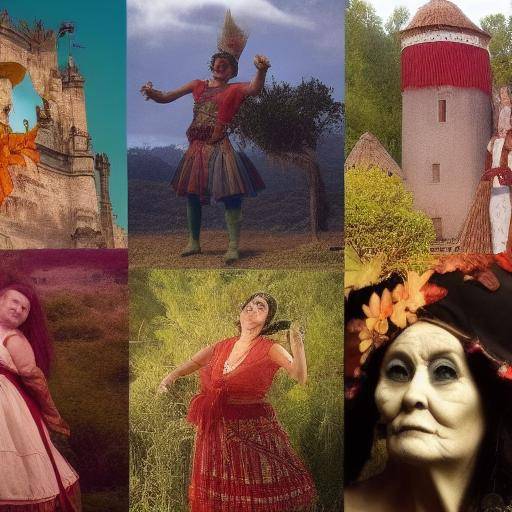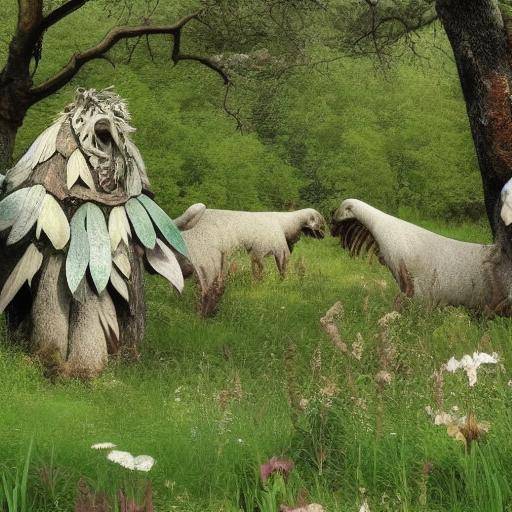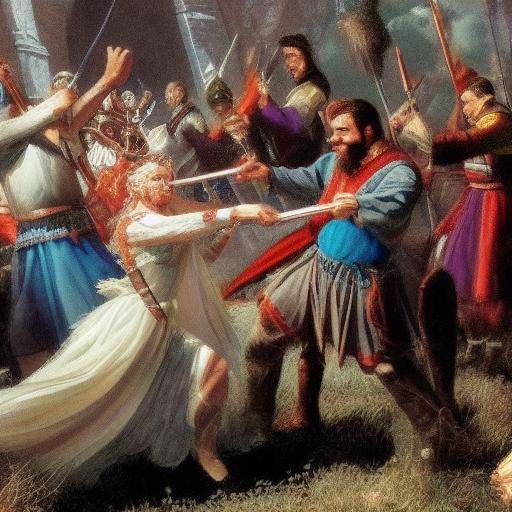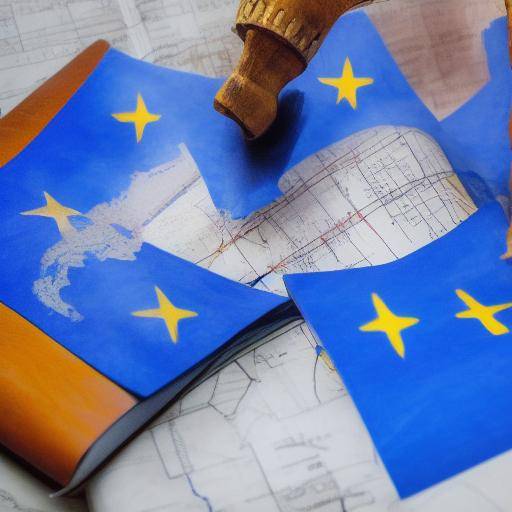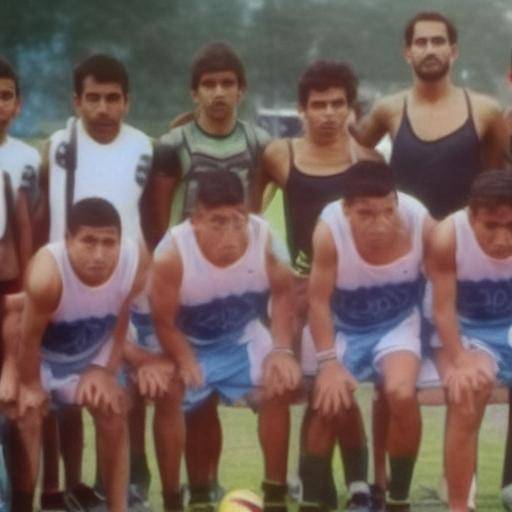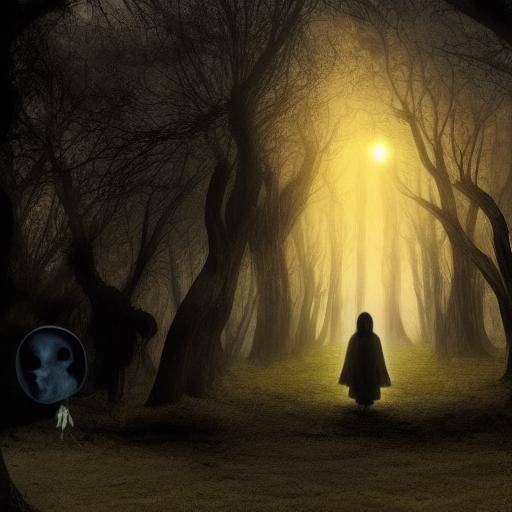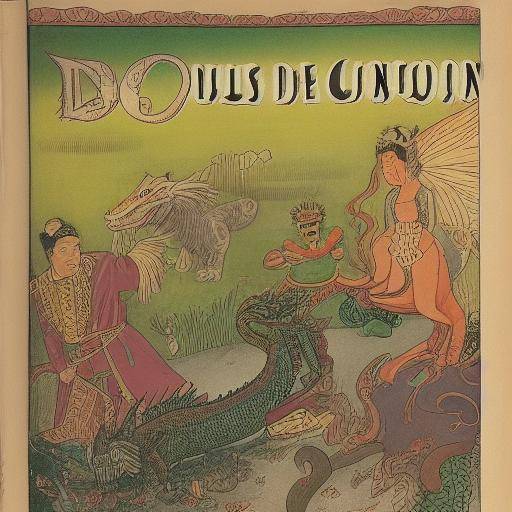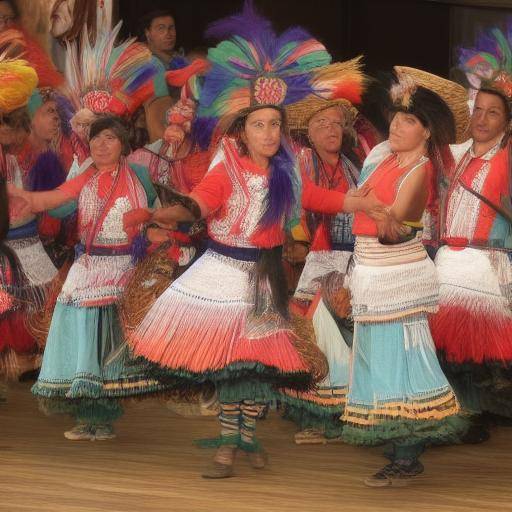
South American folklore is rich in creation myths that reflect ancestral beliefs and the worldview of indigenous cultures. These orally transmitted stories throughout generations have lasted until now, revealing a fascinating narrative about the origin of the world and humanity. In this article, we will explore in depth the myths of creation present in South American folklore, highlighting its cultural relevance and impact in contemporary society.
Introduction: The Enigmas of Creation
The myths of creation are fundamental accounts that seek to explain the origin of the universe, the earth, human beings and other living beings. These narratives transcend the purely religious and intertwine with the identity of communities, providing a cultural and spiritual framework that, in many cases, continues to have influence on current practices and traditions.
In the context of South American folklore, the myths of creation represent the connection between humanity and nature, as well as the deep roots of the civilizations originating from the continent. Through these stories, moral teachings, philosophical concepts and the ancestral wisdom that has endured over time are transmitted.
In this article, we will delve into the rich diversity of myths of creation present in South American folklore, exploring its varied interpretations and relevance today. From the cosmogony of the Andean peoples to the Amazonian legends, each story offers us a unique window to understand the conception of the world in South American cultures.
History and Context
Origins and Evolution of the Myths of Creation
The myths of creation in South American folklore have their roots in the oral traditions of pre-Columbian civilizations, whose cosmovisions intertwined with nature, stars and animals. These narratives, transmitted from generation to generation, reflect the deep connection that indigenous communities had with their environment and their ancestors.
Throughout history, the arrival of the European colonizers and the subsequent Christian evangelization influenced the reinterpretation and assimilation of the myths of creation, leading to a complex syncretization between the indigenous cosmogonies and the beliefs brought by the conquerors. This fusion of cultures has led to a unique narrative richness that traces the various paths of South American folklore.
The Historical and Cultural Significance of the Myths of Creation
The myths of creation in South American folklore not only represent the conception of the origin of the world, but also encapsulate the ancestral values, traditions and knowledge of the indigenous communities. These narratives serve as pillars of cultural identity and testimonies of the resistance and resilience of native peoples against colonization.
In addition, the myths of creation have influenced South American literature, art and music, permeating the creative expression and collective imagination of contemporary societies. The celebration of traditional festivals, the preservation of the indigenous language and the vindication of ancestral practices are clear manifestations of the survival of these myths today.
Detailed Analysis: Myths of Creation in Various South American Cultures
Andean Cosmogony: The Sons of the Sun and the Moon
In the Andean worldview, the creation of the world is closely linked to heavenly deities, in particular the Sun and the Moon. According to the Inca mythology, the god Inti (the Sun) and the goddess Mama Quilla (the Moon) gave birth to humanity, modeling the first men and women from stone at the dawn of creation. This story symbolizes life and fertility, as well as the interrelationship between human beings and the cosmos.
Amazon Legends: The Origin of the Jungle and its Inhabitants
In the depths of the Amazon rainforest, there are stories that tell the birth of the vast vegetation and the myriad of beings that populate it. The Amazonian legends tell how the spirit of nature, represented by mythical beings like the Yacuruna and the Mother of Waters, shaped the exuberant jungle and its inhabitants. These accounts reflect the deep reverence of the Amazonian communities towards biodiversity and interdependence between living beings and the spirits of nature.
Myths Chibchas: The Birth of Bachué and Humanity
The traditions of the chibcha peoples of Colombia relate the history of Bachué, the first mother, who emerged from the waters of a lagoon with a child in arms. According to the myth, Bachué became the parent of humanity, teaching her children the principles of agriculture, fishing and respect for the land. This narrative symbolizes the essential connection between the fertility of the land and the subsistence of the communities, transmitting lessons on the care and preservation of the natural environment.
Profound Analysis: Current Perspectives and Trends
Cultural and Social Relevance of the Creation Myths
The preservation and dissemination of the myths of creation in South American folklore play a crucial role in revitalizing indigenous identity and promoting intercultural respect. These narratives serve as vehicles for the transmission of traditional knowledge and as instruments to strengthen the sense of belonging and cultural heritage of the native communities.
In addition, the creation myths provide a conceptual framework for addressing contemporary issues, such as environmental conservation, respect for cultural diversity and the promotion of intercultural dialogue. The legitimation of these narratives within the educational and academic sphere contributes to the assessment of indigenous traditions and the construction of more inclusive and plural societies.
Challenges and Opportunities in the Preservation of South American Folklore
Despite its cultural importance, the myths of creation in South American folklore face significant challenges, such as the loss of indigenous languages, the erosion of ancestral practices and the influence of dominant narratives. Globalization and cultural homogenization represent threats to the diversity of folk expressions, endangering the transmission of creation myths to future generations.
However, the growing value of cultural diversity and the recognition of the rights of indigenous peoples offer opportunities to revitalize and preserve South American folklore. Support for community initiatives, the promotion of folk festivals and the inclusion of indigenous content in educational programmes are measures that can contribute to the preservation and dissemination of the myths of creation in the region.
Exploring Contemporary Perspectives on the South American Folklore
The reinterpretation of the myths of creation in the contemporary context has led to innovative artistic expressions, such as indigenous literature, community theatre and audiovisual productions claimed by indigenous narratives. These creative manifestations offer new perspectives on South American folklore, generating an intercultural dialogue that transcends temporal and geographical barriers.
In addition, indigenous communities and cultural organizations have taken an active role in promoting South American folklore internationally, participating in festivals and events that celebrate the cultural and artistic diversity of the region. The creation of networks of cooperation and the exchange of experiences among indigenous communities in different countries contribute to strengthening the ties of solidarity and enriching the global understanding of South American folklore.
Comprehensive Review: Comparison of Creation Myths in the South American Folklore
Similarities and Differences between the Creation Myths
Despite the diversity of myths of creation in South American folklore, it is possible to identify common elements that reflect the cosmovision shared by many indigenous communities. The recognition of the Earth as a generous mother, the veneration of the stars and respect for nature are recurring principles that underlie various narratives, demonstrating the interconnection between the native cultures of the continent.
In contrast, the particularities of each creation myth reflect the diverse geographical, historical and cultural realities of the South American communities. While the Andean narratives exalt the importance of heavenly phenomena, the Amazonian legends highlight the close links with the lush jungle, offering unique perspectives on the relationship between the human being and his environment.
Example of Similitude: Creation as the Act of Generosity
In both the Andean cosmogony and the Amazonian legends, the notion that the creation of the world and humanity is the result of an act of generosity of the deities and spirits of nature is visible. This conception reinforces the idea of reciprocity and mutual care, founding ethical pillars in the relationship between the human being and the natural environment.
Example of Difference: Influence of Natural Elements
While in the Andean myths the celestial elements and the mountains stand out as pillars of creation, the Amazonian legends give preeminence to rivers, flora and fauna as pillars of their cosmogony. This difference reveals the different forms of appreciation and veneration of nature present in South American folklore.
Comparative Approach: Creation Myths and Legends in Perspective
The wealth of South American folklore is manifested in the interrelationship between the myths of creation and the legends that make up the narrative fabric of indigenous communities. While the myths of creation explore the origin of the world and humanity from a cosmic perspective, legends relate the encounters between human beings and the spirits of nature, as well as the exploits of mythical heroes and supernatural beings.
The interaction between the myths of creation and legends reveals a complex symbolic universe that transcends the merely explanatory, enclosing profound meanings on the human condition, the relationship with the divine and the moral teachings transmitted by generations. This network of accounts is an invaluable cultural heritage that deserves to be preserved and disseminated globally.
Practical Tips and Accessible Recommendations
Value and Dissemination of Creation Myths
For those interested in exploring and evaluating the myths of creation in the context of South American folklore, it is recommended:
- Participate in folk festivals and cultural events that promote the diversity of artistic and traditional expressions of the region.
- Support community initiatives aimed at preserving and disseminating South American folklore, such as the creation of cultural centres and educational projects aimed at the transmission of traditional knowledge.
- Investigate and read literature specializing in indigenous mythology and narrative, deepening in the understanding of creation myths and their current relevance.
Respect and Recognition of Indigenous Traditions
It is vital to promote respect for and recognition of indigenous traditions through:
- The promotion of an intercultural dialogue that values the diversity of cultural expressions present in South American folklore.
- The inclusion of content related to creation myths in educational programmes, fostering the appreciation and understanding of indigenous cosmovisions among new generations.
- Support for organizations and movements that defend the rights of indigenous peoples and promote the preservation of their cultural heritage.
Perspectives of Future Experts and Trends
Vision of Experts: The South American Folklore in Global Perspective
According to the anthropologist María del Carmen, an expert in South American indigenous culture, "the myths of creation in South American folklore represent an inexhaustible source of ancestral wisdom that awakens the interest of both academics and artists and curious. Its value transcends the mere folklore, constituting a cultural legacy that deserves to be recognized worldwide".
anthropologist Juan Pérez says that "the preservation of the myths of creation is fundamental to understanding the cultural and spiritual diversity of South America, as well as to promote harmonious coexistence between contemporary societies and indigenous communities. Its diffusion contributes to enriching the cultural heritage of humanity and to strengthening respect for diversity."
Future Trends: Revaluation and Reinterpretation of the Creation Myths
There is a growing interest on the part of the international community in exploring and understanding the myths of creation present in South American folklore, together with a greater appreciation of the artistic and intellectual expressions of indigenous communities. The revaluation of these ancestral narratives represents an opportunity to promote cultural diversity and interculturality in an increasingly globalized world.
It is also expected that the retextualization of the myths of creation in contemporary media, such as literature, cinema and digital platforms, will open new possibilities for these millennial narratives to reach global audiences, generating an enriching intercultural dialogue that promotes respect and appreciation of cultural diversity.
Conclusions and FAQs
Conclusion
In conclusion, the myths of creation in South American folklore constitute an invaluable legacy that encloses the worldview, wisdom and traditions of the indigenous cultures of the continent. These narratives transcend the mere explanatory, offering a window to the deep understanding of the relationship between humanity and nature, as well as moral teachings that endure until today.
The preservation and dissemination of the myths of creation in the context of South American folklore are fundamental to the strengthening of cultural identity, the promotion of intercultural respect and the appreciation of the diversity of artistic and spiritual expressions of indigenous communities. The revaluation of these ancestral narratives represents an opportunity to honor and recognize South America's cultural wealth globally.
Frequently asked questions
1. What is the importance of the myths of creation in the context of South American folklore?
The creation myths play a crucial role in preserving cultural identity, transmitting ancestral knowledge and promoting intercultural respect in South America. These narratives represent an inexhaustible source of ancestral wisdom that promotes harmonious coexistence between contemporary societies and indigenous communities.
2. How can you contribute to the preservation of the myths of creation in South American folklore?
The preservation of the myths of creation in South American folklore requires the support of community initiatives, the inclusion of indigenous content in educational programs and the dissemination of artistic expressions that revalue and disseminate these narratives. In addition, the recognition of the rights of indigenous peoples and the promotion of intercultural dialogue are fundamental pillars for the preservation of South American folklore.
3. How do myths of creation influence contemporary society?
The myths of creation in South American folklore provide a conceptual framework for addressing contemporary issues, such as environmental conservation, respect for cultural diversity and the promotion of intercultural dialogue. Likewise, these narratives enrich the cultural heritage of humanity and strengthen respect for diversity.
4. What are the future trends related to the revaluation of the myths of creation in South American folklore?
An increasing interest is expected at the international level in exploring and understanding the myths of creation present in South American folklore, as well as a greater appreciation of the artistic and intellectual expressions of indigenous communities. Recontextualization of these narratives in contemporary media represents an opportunity to promote cultural diversity in a globalized world.
5. What do the myths of creation bring to the cultural heritage of South America?
The myths of creation in South American folklore constitute an invaluable legacy that encloses the worldview, wisdom and traditions of the indigenous cultures of the continent. These narratives represent a significant manifestation of the cultural heritage of South America, enriching the understanding of the cultural and spiritual diversity of the region.
6. How can people interested in South American folklore contribute to their dissemination?
People interested in South American folklore can contribute to their dissemination by participating in folk festivals, supporting community initiatives and promoting respect for and recognition of indigenous traditions. In addition, research and reading specialized in indigenous mythology and narrative can enrich the understanding of this rich cultural heritage.
The myths of creation in South American folklore represent the living expression of the cultural and spiritual diversity of the region, offering unique windows to understand the relationship between humanity and nature, as well as moral teachings that last until today. The preservation and appreciation of these ancestral narratives is an invaluable legacy that deserves to be honoured and disseminated globally, enriching the cultural acquis of humanity.

